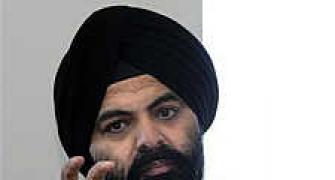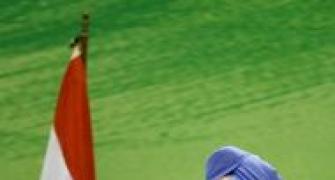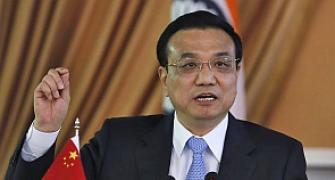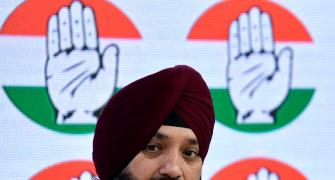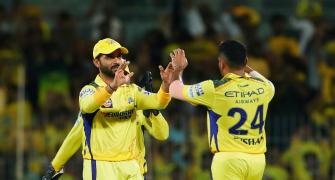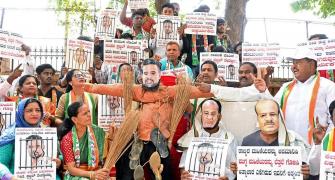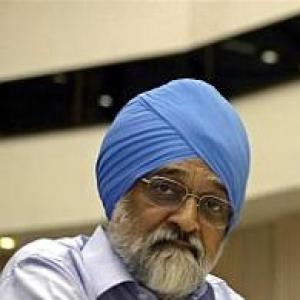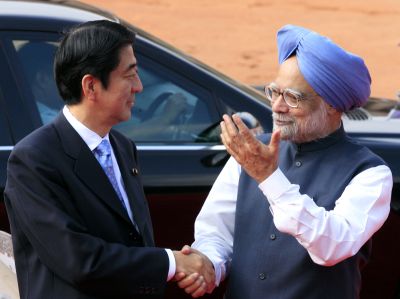 Rediff.com’s Vipin Vijayan, who will accompany Prime Minister Manmohan Singh during his upcoming trip to Japan and Thailand, gives his take on what to expect on the bilateral fronts from the two significant visits.
Rediff.com’s Vipin Vijayan, who will accompany Prime Minister Manmohan Singh during his upcoming trip to Japan and Thailand, gives his take on what to expect on the bilateral fronts from the two significant visits.
As Prime Minister Manmohan Singh packs his bags for his two-nation trip starting May 27, he seems to be leaving ample space to bring back enough goodwill and business to India.
Dr Singh’s trip to Japan and Thailand comes at a time when serious questions are being posed about the United Progressive Alliance government’s foreign policy, especially in its neighbourhood.
Great expectations are being attached to Dr Singh’s visit to Japan. The long stalled nuclear deal between the two nations is expected to get a shot in the arm when the prime minister takes up the matter with his Japanese counterpart, Shinzo Abe.
The discussions on the civil nuclear cooperation were stranded after the disaster in Fukushima in the aftermath of the massive 2011 tsunami.
Abe too has expressed his desire to renew the discussions on the deal, which will help allay apprehensions over the Japanese nuclear technology.
However, New Delhi has made it clear that it is no hurry to consummate the deal.
Foreign Secretary Ranjan Mathai on Friday told mediapersons that the deal with Japan could fructify by the end of the year.
“There are a number of stages we have to go through before we reach the signature. I can't put a date on it. We would certainly like to conclude this. We hope to make by the end of this year more progress in this field," Mathai said.
Among other crucial items on the discussion list is China.
Both India and Japan have been victims of China’s aggressive posturing in the region.
While India, after prolonged deliberations, managed to evict the Peoples Liberation Army soldiers nestled in the Daulat Beg Oldi sector in Ladakh recently, Japan is struggling to keep the Chinese at bay at the SenkakuIslands.
Japan and China have been squaring off over the disputed island in the East China Sea ever since the then Tokyo governor announced plans to buy the islands a year ago.
While Japan maintains that the SenkakuIslands are an integral part of its territory, the Chinese feel otherwise about the resource-rich islands (which it knows as Diaoyu).
With India though, as Dr Singh puts it, China’s boundary issue is a remnant of history.
Chinese premier Li Keqiang may have expressed a determination to open up a new chapter in the bilateral relations between Beijing and New Delhi, but the former’s posturing especially along the Line of Actual Control in recent months have made some in the current Indian dispensation think otherwise.
The need to open another channel of power equations in the Asian region -- one with India and Japan as allies -- is being strongly felt. The United States is seeking to be the third cog in the wheel in this blooming relationship to counter Beijing.
Besides this, Dr Singh is also likely to appraise his Japanese counterpart about the imbalance that prevails in the economic ties between the two nations.
New Delhi acknowledges that as of now, the trade agreement with Japan is working more in favour of the businessmen of the East Asian giant.
In fact, Commerce Minister Anand Sharma, during his meeting with Japanese Foreign Minister Fumio Kashida earlier this month, raised New Delhi’s concerns on mounting trade deficit and specially sought market access for Indian agricultural and marine produce and pharmaceuticals.
Dr Singh will seek to address this anomaly in the ties during his meeting with the Japanese government and industry leaders.
Mathai announced that there are several visionary projects, including export of Shinkansen (bullet train) technology, western freight corridor, Delhi-Mumbai industrial corridor and the Chennai-Bangalore corridor.
Furthering his Look East agenda, the prime minister will also look to cement ties with Thailand during his day long stay in the country.
As Foreign Secretary Mathai puts it, New Delhi sees Thailand as the bridge between South and South East Asia.
The key to paving the road to bilateral ties perhaps goes through the trilateral highway, involving India, Thailand and Myanmar, which is expected to be completed by 2016.
India is constructing a 183 kilometre, four-lane road into Myanmar. For its part, Myanmar has earmarked one fifth of a $500-million credit line extended by India for this road project. Similarly, Thailand is building 83 km, which is its share of the road into Myanmar.
Besides this, defence cooperation, extradition treaty, science and technology projects, Free Trade Agreements, education and culture are some of the subjects which Dr Singh will take up with his Thai counterpart Yingluck Shinawatra in Bangkok on May 30.
Yingluck visited India once as the Republic Day chief guest last year. She returned for the ASEAN India commemorative summit to celebrate the 20th anniversary of the India ASEAN dialogue last December.
On May 30 when Dr Singh reciprocates the gesture, he will try to position New Delhi as a major player in the region of growing strategic importance. To do so he will need to move beyond mere interaction and confidence-building towards integration, agenda-setting and conflict resolution.
Image: Prime Minister Manmohan Singh greets Japan PM Shinzo Abe during the latter’s visit to India in 2007
Photograph: B Mathur/Reuters

